


Source: WikiCommons
World War II or the Second World War, often abbreviated as WWII or WW2, was a global war that lasted from 1939 to 1945. It involved the vast majority of the world's countries—including all of the great powers—forming two opposing military alliances: the Allies and the Axis powers. It was the deadliest conflict in history, with over 70 million fatalities worldwide. Read through the tabs above and the resources below to learn more about this world-defining conflict and Australia's involvement in it.
This database includes many Victorian daily and regional newspapers from 1838 to 1954.
The library provides access to a number of great resources in their collection, including this specific collection about WWII and Australia's involvement.
The Australian War Memorial has an impressive collection of resources about Australia's military history.
The National Archives' extraordinary collection of records about Australia's defence and war efforts will help support your academic research.
The Department of Veteran Affairs retains records of those who served Australia and maintain nominal rolls, service records and information about the contributions of Aboriginal and Torres Strait Islander servicemen and women.
The official history of Australia's involvement in the Second World War represents one of the longest and largest historical endeavours Australia has ever seen. The enterprise began in January 1943 with the appointment of Gavin Long as General Editor. The 22 volumes, written 14 authors, were published by the Memorial over a 25-year period between 1952 and 1977.
The figures in the table hereunder represent gross enlistments of war service personnel, plus permanent personnel at the beginning of the war, plus gross enlistments in the permanent forces. Particulars for the Navy and Air Force are as at 31st December, 1945, and for the Army as at 28th February, 1946. The term "gross enlistments" indicates that no deductions have been made because of discharges, dead, deserters, etc.
This website has a number of videos from either veterans or their families describing their experiences of wartime service.

Alien: belonging to a foreign country.
Analysis: the process of examining evidence. For students of history, this typically involves (a) studying individual pieces of data for inherent clues, strengths, and weaknesses; (b) correlating details from different sources in search of patterns; and (c) determining whether the whole body of evidence amounts to more than the sum of the individual parts.
Anschluss: the annexation of Austria into Nazi Germany on 12 March 1938.
Antisemitism: prejudice against or hatred of Jews.
Appeasement: a diplomatic policy of making political, material, or territorial concessions to an aggressive power in order to avoid conflict.
Aryan Race: in Nazi racial theory, a person of pure German "blood."
Assault: make a physical attack on.
Assertion: a claim or statement of “fact.”
Auschwitz: Nazi Germany's largest concentration camp and extermination camp.
Battle of Britain: a military campaign of the Second World War, in which the Royal Air Force and the Fleet Air Arm of the Royal Navy defended the United Kingdom against large-scale attacks by Nazi Germany's air force, the Luftwaffe.
Bavaria: a federal state in the south-east of Germany.
Beer Hall Putsch: a failed coup d'état by Nazi Party leader Adolf Hitler, Generalquartiermeister Erich Ludendorff and other Kampfbund leaders in Munich, Bavaria, on 8–9 November 1923, during the Weimar Republic.
Birkenau: the largest of the more than 40 camps and sub-camps that made up the Auschwitz complex.
Blitzkrieg: a military tactic of sudden and extreme force calculated to create psychological shock and resultant disorganization in enemy forces.
Bystander: a person who is present at an event or incident but does not take part.
Collaborator: a person who cooperates traitorously with an enemy; a defector.
Colonialism: the policy or practice of acquiring full or partial political control over another country, occupying it with settlers, and exploiting it economically.
Communism: an economic ideology that advocates for a classless society in which all property and wealth are communally-owned, instead of by individuals.
Concentration camp: a place in which large numbers of people, especially political prisoners or members of persecuted minorities, are deliberately imprisoned in a relatively small area with inadequate facilities, sometimes to provide forced labour or to await mass execution.
Content: the content of a book, movie, or song is what it's about: the topic.
Coral Sea: a marginal sea of the South Pacific off the northeast coast of Australia.
Corroborate: confirm or give support to (a statement, theory, or finding).
Czechoslovakia: a sovereign state in Central Europe, created in October 1918, when it declared its independence from Austria-Hungary.
Danzig: The Free City of Danzig was a semi-autonomous city-state that existed between 1920 and 1939, consisting of the Baltic Sea port of Danzig and nearly 200 towns and villages in the surrounding areas.
Death march: a forced march of prisoners of war or other captives or deportees in which individuals are left to die along the way.
Dehumanise: to deprive (someone or something) of human qualities, personality, or dignity.
Democracy: a form of government in which the people have the authority to deliberate and decide legislation, or to choose governing officials to do so.
Democratic republic: a form of government operating on principles adopted from a republic and a democracy. As a cross between two entirely separate systems, democratic republics may function on principles shared by both republics and democracies.
Dictator: a ruler with total power over a country, typically one who has obtained control by force.
Discrimination: the unjust or prejudicial treatment of different categories of people, especially on the grounds of race, age, sex, or disability.
Dunkirk: a small town on the coast of France that was the scene of a massive military campaign during World War II
Dysentery: an intestinal infection that causes severe diarrhea with blood.
El Alamein: a pitched battle in World War II (1942) resulting in a decisive Allied victory by British troops under Montgomery over German troops under Rommel.
Enemy: a hostile nation or its armed forces, especially in time of war.
Enlistment: the action of enrolling or being enrolled in the armed services.
European theatre: the main theatre of combat during World War II.
Expansion: the process where states grow the size of their country through military empire-building or colonialism.
Fascist: a governmental system led by a dictator having complete power, forcibly suppressing opposition and criticism, regimenting all industry, commerce, etc., and emphasizing an aggressive nationalism and often racism.
Final Solution: the Nazi policy of exterminating European Jews. Introduced by Heinrich Himmler and administered by Adolf Eichmann, the policy resulted in the murder of 6 million Jewish people in concentration camps between 1941 and 1945.
Fuzzy Wuzzy Angels: the name given by Australian soldiers to Papua New Guinean war carriers who, during World War II, were recruited to bring supplies up to the front and carry injured Australian troops down the Kokoda trail during the Kokoda Campaign.
Genocide: the deliberate killing of a large number of people from a particular nation or ethnic group with the aim of destroying that nation or group.
Ghetto: a part of a city in which members of a minority group live, especially as a result of political, social, legal, environmental or economic pressure. Ghettos are often known for being more impoverished than other areas of the city.
Ghettoization: put in or restrict to an isolated or segregated place, group, or situation.
Hand to hand combat: fighting where the people are very close together, using either their hands or weapons such as knives.
Holocaust: the genocide of European Jews during World War II. Between 1941 and 1945, Nazi Germany and its collaborators systematically murdered some six million Jews across German-occupied Europe, around two-thirds of Europe's Jewish population.
Homefront: the civilian population and activities of a nation whose armed forces are engaged in war abroad.
Independence: freedom from being governed or ruled by another country.
Inference: a “fact” deduced from information that implies something it does not state outright.
Internment camps: a prison camp for the confinement of prisoners of war, enemy aliens, political prisoners, etc.
Invasion: an instance of invading a country or region with an armed force.
Kokoda: a campaign that was part of the Pacific War of World War II. The campaign consisted of a series of battles fought between July and November 1942 in what was then the Australian Territory of Papua.
Kristallnacht: Also known as The Night of the Broken Glass.
On this night, November 9, 1938, almost 200 synagogues were destroyed, over 8,000 Jewish shops were sacked and looted, and tens of thousands of Jews were removed to concentration camps. This pogrom received its name because of the great value of glass that was smashed during this anti-Jewish riot. Riots took place throughout Germany and Austria on that night.
Liberation: the act of making people free.
Lodz: a Nazi ghetto established by the German authorities for Polish Jews and Roma following the Invasion of Poland.
Malaria: a serious and sometimes fatal disease caused by a parasite that commonly infects a certain type of mosquito which feeds on humans.
Motive: a reason for doing something.
Non-aggression pact: a treaty between two or more states/countries that includes a promise by the signatories not to engage in military action against each other.
Nuremberg Laws: antisemitic and racist laws that were enacted in Nazi Germany on 15 September 1935, at a special meeting of the Reichstag convened during the annual Nuremberg Rally of the Nazi Party.
Operation Barbarossa: the code name for the invasion of the Soviet Union by Nazi Germany and some of its Axis allies, which started on Sunday, 22 June 1941, during World War II.
Origin: the point or place where something begins, arises, or is derived.
Overwhelm: to make helpless, as with greater force or deep emotion.
Pacific theatre: a major theater of the Pacific War, the war between the Allies and the Empire of Japan. It was defined by the Allied powers' Pacific Ocean Area command, which included most of the Pacific Ocean and its islands.
Panzer: a German armoured unit.
Paramilitary: a semi-militarized force whose organizational structure, tactics, training, subculture, and function are similar to those of a professional military, but is not part of a country's armed forces.
Paratroops: a military unit of soldiers trained to be dropped from an aircraft with a parachute.
Pathfinder troops: a specialized soldier inserted or dropped into place in order to set up and operate drop zones, pickup zones, and helicopter landing sites for airborne operations, air resupply operations, or other air operations in support of the ground unit commander.
Patriotism: devotion to and vigorous support for one's country.
Pearl Harbor: a major United States naval base in Hawaii that was attacked without warning by the Japanese air force on December 7, 1941, with great loss of American lives.
Perpetrator: a person who carries out a harmful, illegal, or immoral act.
Potsdam Conference: The Potsdam Conference was held in Potsdam, Germany, from July 17 to August 2, 1945 to allow the three leading Allies to plan the postwar peace, while avoiding the mistakes of the Paris Peace Conference of 1919. The participants were the Soviet Union, the United Kingdom, and the United States.
Prejudice: a feeling of unfair dislike directed against an individual or a group because of some characteristic (as race or religion).
Primary source: an original object or document -- the raw material or first-hand information, source material that is closest to what is being studied.
Prisoner of war: a person who has been captured and imprisoned by the enemy in war.
Propaganda: information, especially of a biased or misleading nature, used to promote a political cause or point of view.
Pseudo-scientific: falsely or mistakenly claimed or regarded as being based on scientific method.
Psyche: the human soul, mind, or spirit.
Pyramid of Hate: shows biased behaviors, growing in complexity from the bottom to the top. Although the behaviors at each level negatively impact individuals and groups, as one moves up the pyramid, the behaviors have more life-threatening consequences
Racism: prejudice, discrimination, or antagonism by an individual, community, or institution against a person or people on the basis of their membership of a particular racial or ethnic group, typically one that is a minority or marginalized.
Rats of Tobruk: the soldiers of the Australian-led Allied garrison that held the Libyan port of Tobruk against the Afrika Corps, during the Siege of Tobruk in World War II. The siege started on 11 April 1941 and was relieved on 10 December.
Rearmament: the process of building up a new stock of military weapons.
Red Army: the army and air force of the Russian Soviet Federative Socialist Republic and, after 1922, the Union of Soviet Socialist Republics. The army was established in January 1918.
Resistance: a situation in which people or organizations fight against something or refuse to accept or be changed by something.
Saar: a French invasion of Saarland, Germany, in the first stages of World War Two, from 7 to 16 September 1939.
Sandakan: a prisoner-of-war camp established during World War II by the Japanese in Sandakan in the Malaysian state of Sabah. This site has gained notoriety as the Sandakan Death Marches started from here.
Secondary source: something written about a primary source. Secondary sources include comments on, interpretations of, or discussions about the original material. Secondary source materials can be articles in newspapers or popular magazines, book or movie reviews, or articles found in scholarly journals that evaluate or criticise someone else's original research.
Segregate: set apart from the rest or from each other; isolate or divide.
Self-determination: the process by which a country determines its own statehood and forms its own government.
Siege: a military operation in which enemy forces surround a town or building, cutting off essential supplies, with the aim of compelling those inside to surrender.
Sovereignty: the authority of a state to govern itself or another state.
Soviet Union: communist state that spanned Eurasia during its existence from 1922 to 1991. It was nominally a federal union of multiple national republics; in practice its government and economy were highly centralized until its final years.
Stereotype: a widely held but fixed and oversimplified image or idea of a particular type of person or thing.
Sudetenland: the historical German name for the northern, southern, and western areas of former Czechoslovakia which were inhabited primarily by Sudeten Germans.
Survivor: a person who survives, especially a person remaining alive after an event in which others have died.
Testimony: a formal written or spoken statement, especially one given in a court of law.
Theatres of war: an area in which important military events occur or are progressing. A theater can include the entirety of the airspace, land and sea area that is or that may potentially become involved in war operations.
Tobruk: a port city on Libya's eastern Mediterranean coast, near the border with Egypt. It was the site of a siege during World War II.
Totalitarianism: a system of government that is centralized and dictatorial and requires complete subservience to the state.
Treblinka: an extermination camp, built and operated by Nazi Germany in occupied Poland during World War II. It was in a forest north-east of Warsaw, 4 km south of the village of Treblinka in what is now the Masovian Voivodeship.
Turning point: a time at which an important change takes place which affects the future of a person or thing.
Vichy France: the common name of the French State headed by Marshal Philippe Pétain during World War II.
Victoria Cross: the highest and most prestigious award of the British honours system. It is awarded for valour "in the presence of the enemy" to members of the British Armed Forces. It may be awarded posthumously.
Volga River: the longest river in Europe. Situated in Russia, it flows through Central Russia to Southern Russia and into the Caspian Sea. It is widely regarded as the national river of Russia. During World War II, the city on the big bend of the Volga, currently known as Volgograd, witnessed the Battle of Stalingrad, possibly the bloodiest battle in human history, in which the Soviet Union and the German forces were deadlocked in a stalemate battle for access to the river.
Warsaw: the capital and largest city of Poland.
Weimar Germany: Germany in the period of 1918 to 1933, during which it was a constitutional federal republic for the first time in its history.
Women's Land Army: a British civilian organisation created in 1917 during World War I so women could work in agriculture. It was revived from the disbanded World War One organisation in 1939 so that it could again organise women to replace workers called up to the military.
Yalta conference: the World War II meeting of the heads of government of the United States, the United Kingdom, France and the Soviet Union to discuss the postwar reorganization of Germany and Europe.

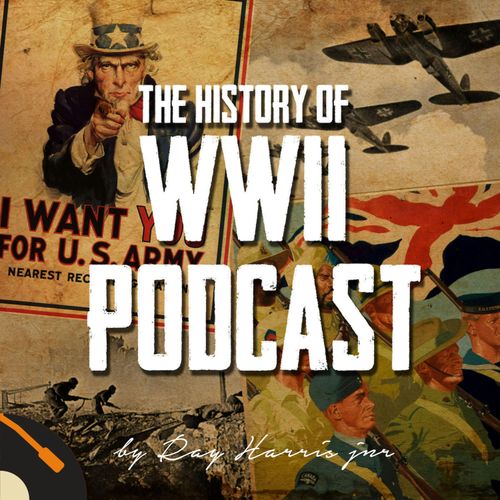 |
The History of WWII PodcastA biweekly podcast covering the last great war. A podcast on iTunes and a website dedicated to telling the story of World War II. |
 |
The WW2 PodcastA history podcast looking at all aspects of WWII, military history, social history, the battles, the campaigns, tanks, guns and other equipment, the politics, and those who ran the war. |
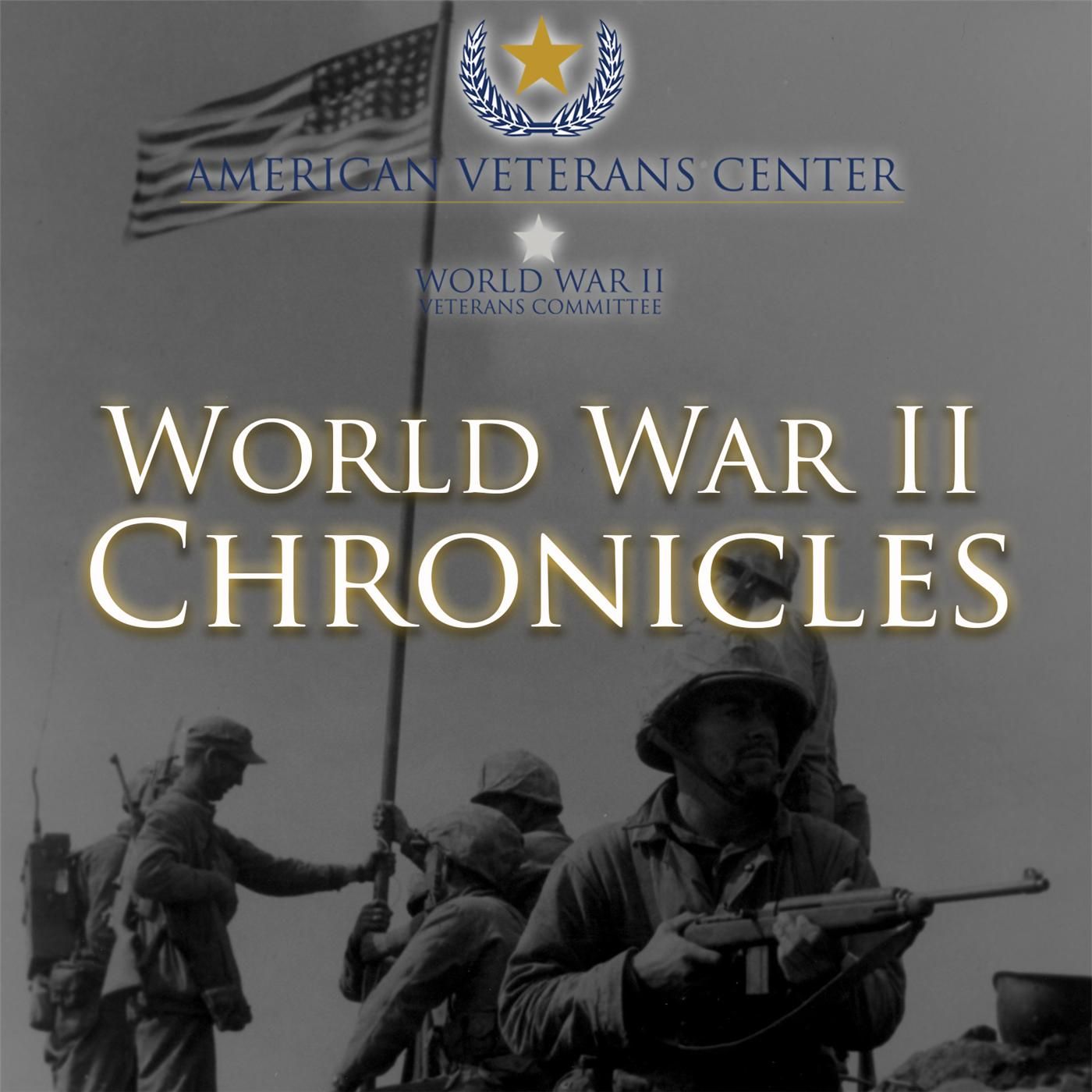 |
World War II ChroniclesWorld War II Chronicles is a weekly look back to 'This Week in World War II, 75 Years Ago.' Originally produced in coordination with the National Archives to mark the 50th anniversary of the war, World War II Chronicles features original newsreel reports and archival footage to tell the story as it happened, week by week. Hosted by famed World War II newsreel anchor Ed Herlihy, World War II Chronicles is produced by the American Veterans Center. |
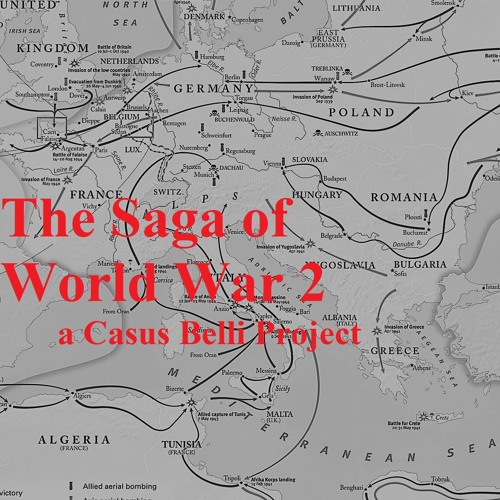 |
The Saga of World War 2 podcastA sister project of Casus Belli, the Saga of World War 2 is a podcast with one purpose; to cover the entire second world war from start to finish. An immense task but one that hopefully many will find interesting and informative. |
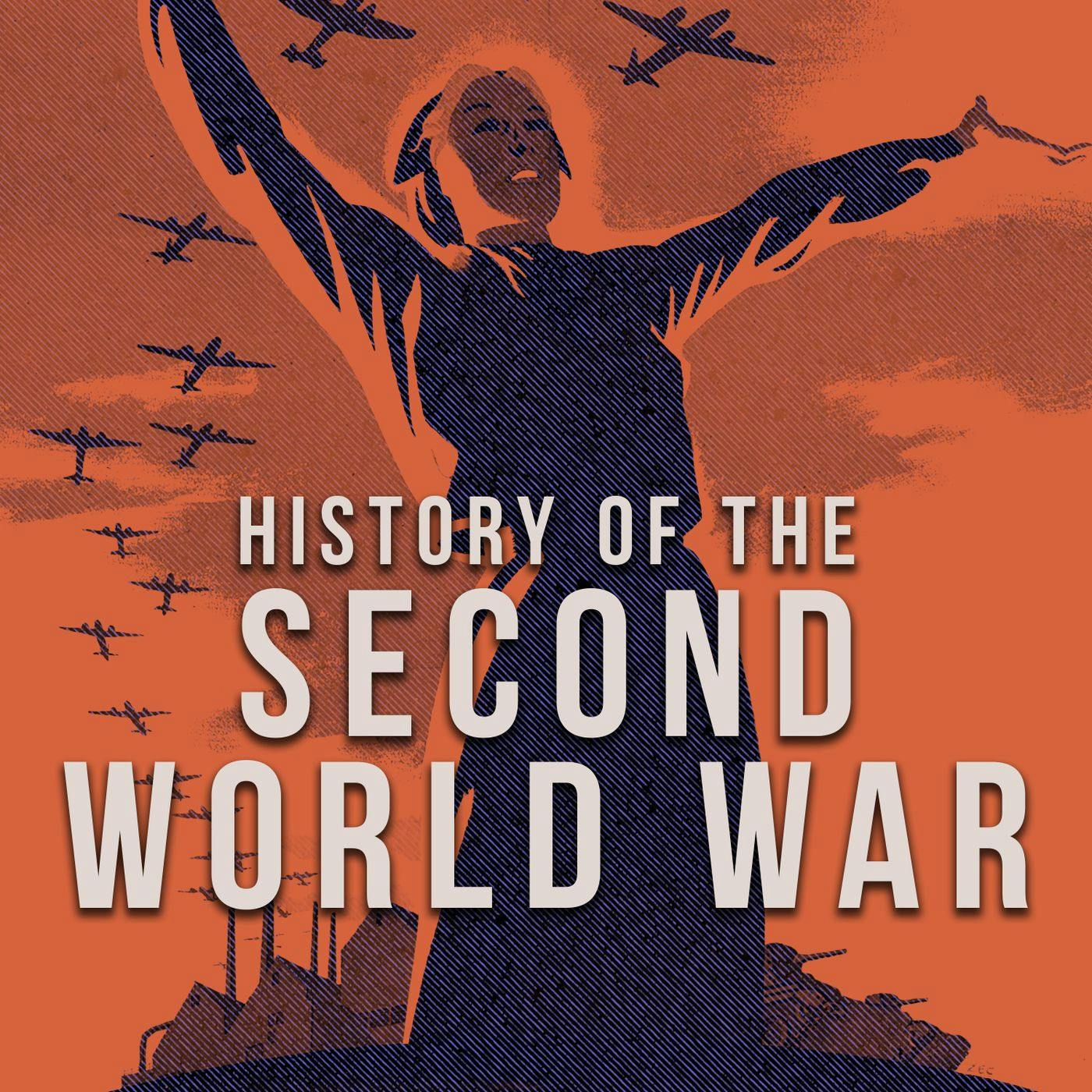 |
History of the Second World War podcastHistory of the Second World War is a weekly podcast which will cover World War 2, beginning with the tumultuous years after the First World War, continuing into the descent into war during the 1930s, through the war years, and then into the post war aftermath. |
Stories of the Second World WarA podcast that explores every aspect of World War II. Hosted by Noah Tetzner. |


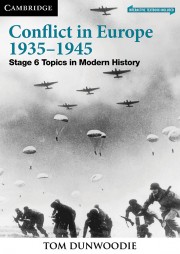 Conflict in Europe 1935-1945 by
Conflict in Europe 1935-1945 by  The Pacific War : from Pearl Harbor to Hiroshima by
The Pacific War : from Pearl Harbor to Hiroshima by 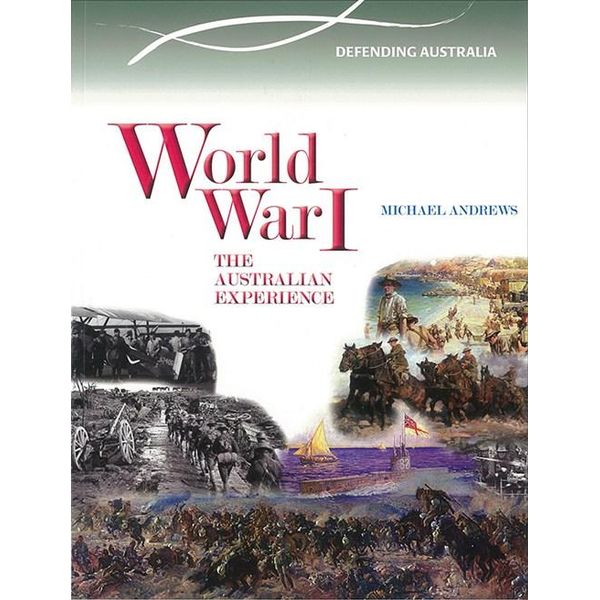 World War II : the Australian experience by
World War II : the Australian experience by  All in! : fighting the war at home by
All in! : fighting the war at home by  Another mouth to feed : children in war & depression 1900-1945 by
Another mouth to feed : children in war & depression 1900-1945 by  Our home front 1939-1945 : the tears, the tradgedy, the laughter: from the pages of the Herald and the Sun by
Our home front 1939-1945 : the tears, the tradgedy, the laughter: from the pages of the Herald and the Sun by  A short history of World War II by
A short history of World War II by 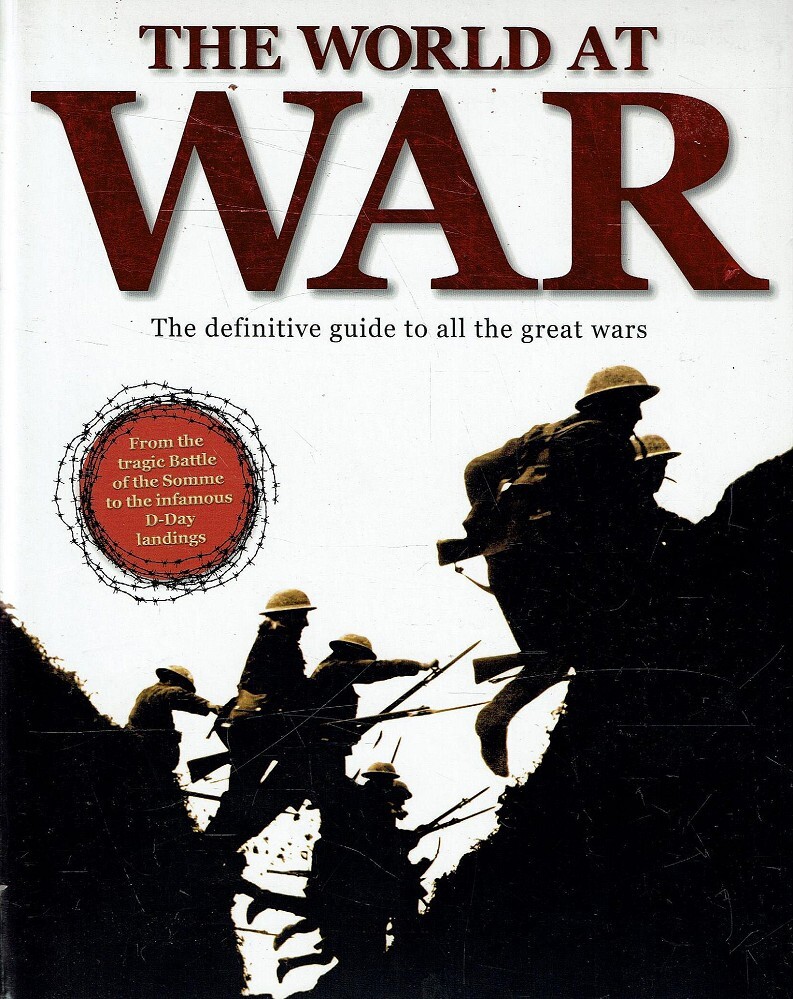 The world at war
The world at war